Soybean
How to submit an article:
- Registered users can submit any published journal article that has a unique DOI (Digital Object Identifier) name or link to Research Hub.
- For example, you can paste the full DOI link:
https://doi.org/10.1109/5.771073or just the DOI name:10.1109/5.771073into the field above and click submit. - The person who is first to submit a valid article to Research Hub will forever be credited for it, and every article submission earns you +6 Research Points.
Sub-Topics:
Related Topics
Published research studies are articles that present the findings of original research that has undergone a peer-review process and has been made publicly available in scholarly journals, books or other media.

A dietary intervention for postmenopausal hot flashes: A potential role of gut microbiome. An exploratory analysis
2023 Dec Complementary Therapies in Medicine Kahleova H, Holtz DN, Strom N, La Reau A, Kolipaka S, Schmidt N, et al.
Randomised Controlled Trial Hot Flushes Plant-Based Diet Low Fat Diet Gut Microbiota SoybeanChanges in gut microbiome associated with a low-fat, vegan diet and cooked soybeans may reduce the frequency and severity of postmenopausal hot flashes.
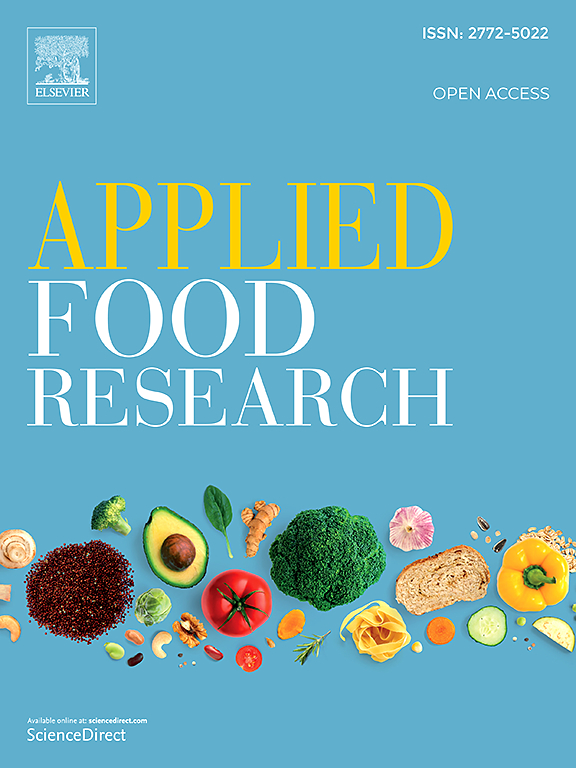
Estrogenic activity of fermented soymilk extracts and soy compounds
2023 Dec Applied Food Research Nishi K, Imamura I, Takemoto T, Iga K, Kiyama R
The study demonstrates the estrogenic activity of soymilk extracts and soy compounds, with greater activity observed after fermentation, highlighting complex mechanisms at the transcription level. RNA-sequencing analysis revealed up-regulation of genes related to cell division/cell cycle and DNA replication/DNA repair and down-regulation of genes associated with autophagy, suggesting enhanced cell proliferation. The estrogenic activity of soymilk extracts and soy flavonoids, especially after fermentation, offers potential pharmacological benefits, including bone protection, cancer chemoprevention, neuroprotection, and the treatment of menopausal syndromes.
Experimental Study Menopause Soy Milk
Anti-Menopausal Effect of Soybean Germ Extract and Lactobacillus gasseri in the Ovariectomized Rat Model
2023 Oct 23 Nutrients Lee SH, Lim TJ, Yun EJ, Kim KH, Lim S
Animal Study Experimental Study Menopause Soybean BacillusA combination of soybean germ extract and a probiotic significantly improved menopause-related conditions and mood in an ovariectomized rat model.
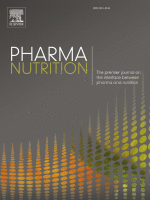
Soy protein, bioactive peptides, and isoflavones: A review of their safety and health benefits
2023 Sep PharmaNutrition Tan ST, Tan SS, Tan CX
Review Article Type 2 Diabetes Soybean Osteoporosis Isoflavone Cholesterol High Blood PressureSoy protein, bioactive peptides, and isoflavones are generally safe for consumption and may help reduce the risk of several significant health conditions.

Effects of Pueraria lobata root and Glycine max (L.) Merrill extracts fermented with Lactiplantibacillus plantarum on the depressive-like behavior in ovariectomized mice via upregulation of hippocampal BDNF
2023 Sep Journal of Functional Foods Ha J, Jang HM, Choi I
Animal Study Experimental Study Bacillus Soybean Depression Ge GenFermented Pueraria lobata root extract and Glycine max extract showed estrogen-like activities, reducing depressive symptoms in menopausal mice but not increasing female cancer risks.
Research insights are moderated by the Research Hub team and offer an at-a-glance overview of interesting research findings.

2023 Complementary Therapies in Medicine
Changes in gut microbiome associated with a low-fat, vegan diet and cooked soybeans may reduce the frequency and severity of postmenopausal hot flashes.
Randomised Controlled Trial Gut Microbiota Hot Flushes Low Fat Diet Plant-Based Diet
A dietary intervention for postmenopausal hot flashes: A potential role of gut microbiome. An exploratory analysis
Kahleova H, Holtz DN, Strom N, La Reau A, Kolipaka S, Schmidt N, et al.

2023 Nutrients
A combination of soybean germ extract and a probiotic significantly improved menopause-related conditions and mood in an ovariectomized rat model.
Animal Study Bacillus Menopause
Anti-Menopausal Effect of Soybean Germ Extract and Lactobacillus gasseri in the Ovariectomized Rat Model
Lee SH, Lim TJ, Yun EJ, Kim KH, Lim S

2023 Journal of Functional Foods
Fermented Pueraria lobata root extract and Glycine max extract showed estrogen-like activities, reducing depressive symptoms in menopausal mice but not increasing female cancer risks.
Animal Study Bacillus Depression Ge Gen
Effects of Pueraria lobata root and Glycine max (L.) Merrill extracts fermented with Lactiplantibacillus plantarum on the depressive-like behavior in ovariectomized mice via upregulation of hippocampal BDNF
Ha J, Jang HM, Choi I

2023 PharmaNutrition
Soy protein, bioactive peptides, and isoflavones are generally safe for consumption and may help reduce the risk of several significant health conditions.
Review Article Cholesterol High Blood Pressure Isoflavone Osteoporosis Type 2 Diabetes
Soy protein, bioactive peptides, and isoflavones: A review of their safety and health benefits
Tan ST, Tan SS, Tan CX
2023 Journal of Microbiology and Biotechnology
Soybean intake can potentially reduce risks of several cancers, type 2 diabetes, osteoporosis, and hot flashes, and it may negatively impact some drug treatments and cause allergies.
Review Article Breast Cancer Hot Flushes Osteoporosis Type 2 Diabetes
Benefits of Soybean in the Era of Precision Medicine: A Review of Clinical Evidence
Kang JH, Dong Z, Shin SH
Review Articles
Review articles summarise and critically evaluate the current state of research on a specific topic or field by synthesising multiple primary research studies.

Soy protein, bioactive peptides, and isoflavones: A review of their safety and health benefits
2023 Sep PharmaNutrition Tan ST, Tan SS, Tan CX
Review Article Type 2 Diabetes Soybean Osteoporosis Isoflavone Cholesterol High Blood PressureSoy protein, bioactive peptides, and isoflavones are generally safe for consumption and may help reduce the risk of several significant health conditions.
Benefits of Soybean in the Era of Precision Medicine: A Review of Clinical Evidence
2023 Aug 28 Journal of Microbiology and Biotechnology Kang JH, Dong Z, Shin SH
Review Article Osteoporosis Soybean Breast Cancer Hot Flushes Type 2 DiabetesSoybean intake can potentially reduce risks of several cancers, type 2 diabetes, osteoporosis, and hot flashes, and it may negatively impact some drug treatments and cause allergies.

Black soybean (Glycine max(L.) Merr.): paving the way toward new nutraceutical
2022 Feb 10 Critical Reviews in Food Science and Nutrition Kumar M, Suhag R, Hasan M, Dhumal S, Radha , Pandiselvam R, et al.
Review Article Black SoybeanModern extraction techniques improve the extraction of bioactive compounds from black soybeans, which have potential use in functional foods and nutraceutical components.
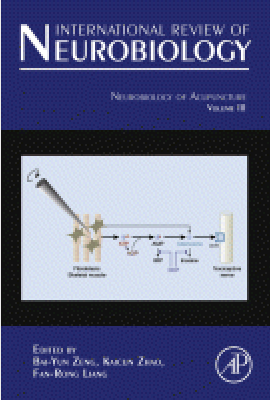
A survey of biological nitrogen fixation in adzuki beans, soybeans, and mung beans, three legumes in traditional Chinese medicine
2022 Jan International Review of Neurobiology Shahrajabian MH, Sun W, Cheng Q
Review Article Mung Bean Soybean Adzuki BeanAdzuki and Mung beans have great potential as functional foods for health promotion and disease prevention, offering an excellent source of essential nutrients and biodiversity for sustainable agriculture.
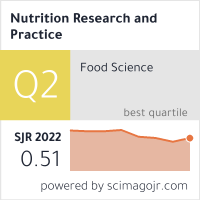
Effect of isoflavone supplementation on menopausal symptoms: a systematic review and meta-analysis of randomized controlled trials
2022 Jan Nutrition Research and Practice Kang I, Rim CH, Yang HS, Choe JS, Kim JY, Lee M
Meta-Analysis Systematic Review Soybean Isoflavone MenopauseIsoflavone supplementation noticeably impacts menopausal symptoms and hormonal changes in postmenopausal women.
Clinical Trials
Clinical trials are research studies that involve people and are conducted to evaluate the safety and efficacy of new treatments or interventions, such as drugs, medical devices, or behavioural therapies.

A dietary intervention for postmenopausal hot flashes: A potential role of gut microbiome. An exploratory analysis
2023 Dec Complementary Therapies in Medicine Kahleova H, Holtz DN, Strom N, La Reau A, Kolipaka S, Schmidt N, et al.
Randomised Controlled Trial Hot Flushes Plant-Based Diet Low Fat Diet Gut Microbiota SoybeanChanges in gut microbiome associated with a low-fat, vegan diet and cooked soybeans may reduce the frequency and severity of postmenopausal hot flashes.
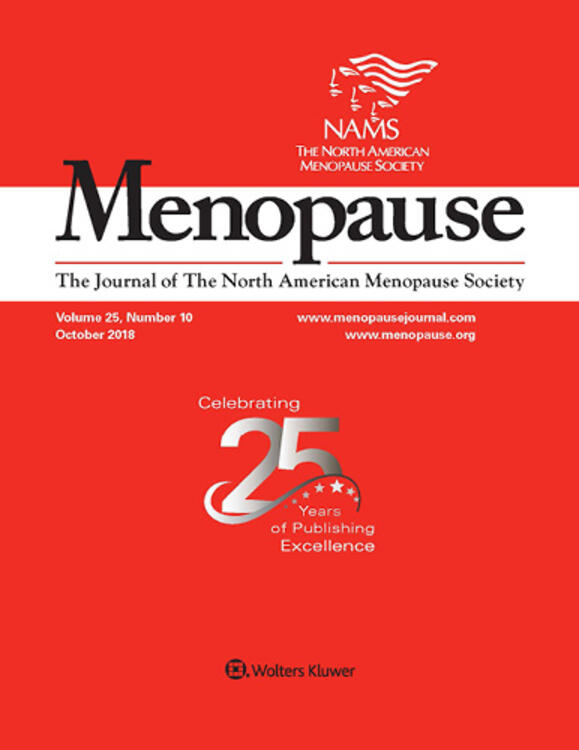
A dietary intervention for vasomotor symptoms of menopause: a randomized, controlled trial
2022 Oct 16 Menopause Barnard ND, Kahleova H, Holtz DN, Znayenko-Miller T, Sutton M, Holubkov R, et al.
Randomised Controlled Trial Plant-Based Diet Hot Flushes Menopause Low Fat Diet SoybeanA diet low in fat, vegan, and inclusive of daily cooked soybeans significantly reduces the frequency and severity of hot flashes in postmenopausal women.

Evaluation of the Effectiveness of Fermented Soybean-Lettuce Powder for Improving Menopausal Symptoms
2022 Jul 13 Nutrients Han AL, Lee HK, Chon HS, Pae HO, Kim MS, Shin YI, et al.
Randomised Controlled Trial Menopause Soybean LettuceSoybean lettuce extract effectively reduces symptoms of menopause syndrome without notable side effects.
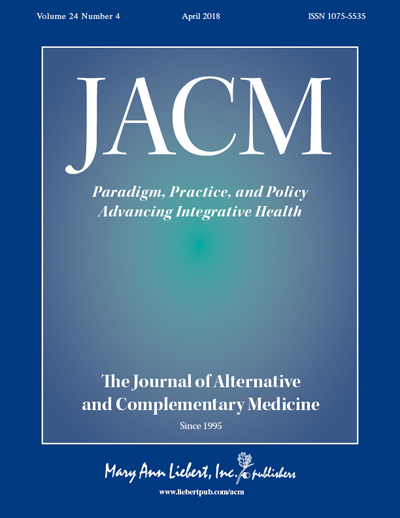
Efficacy and Safety of a Standardized Soy and Hop Extract on Menopausal Symptoms: A 12-Week, Multicenter, Randomized, Double-Blind, Placebo-Controlled Clinical Trial
2021 Nov 01 The Journal of Alternative and Complementary Medicine Kim HI, Kim MK, Lee I, Yun J, Kim EH, Seo SK
Randomised Controlled Trial Soybean Menopause HopsA combined treatment of soy and hop extract is a safe and effective alternative to traditional hormone replacement therapy for improving postmenopausal symptoms.
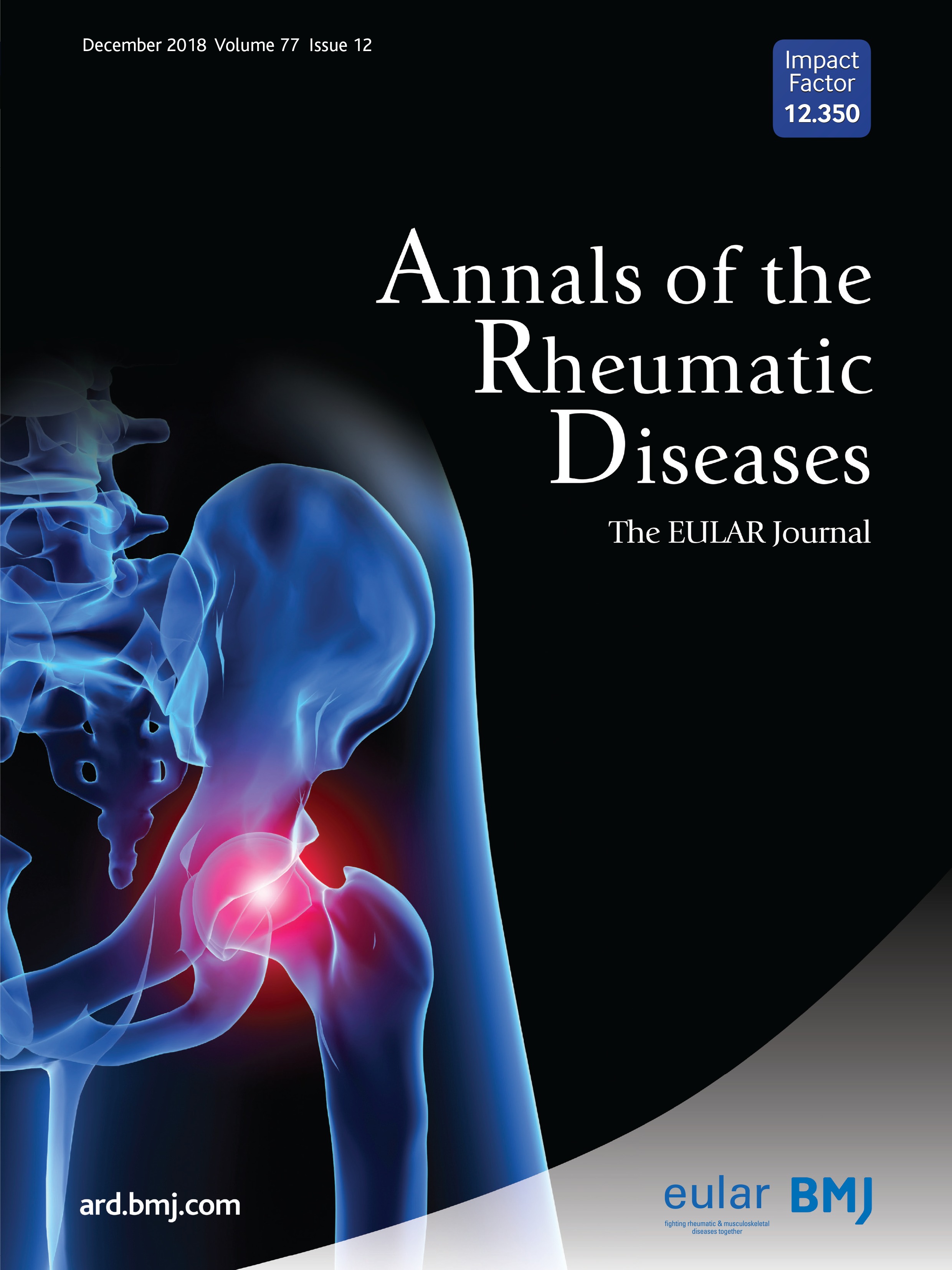
Randomised, controlled trial of avocado–soybean unsaponifiable (Piascledine) effect on structure modification in hip osteoarthritis: the ERADIAS study
2013 Jan 23 Annals of the Rheumatic Diseases Maheu E, Cadet C, Marty M, Moyse D, Kerloch I, Coste P, et al.
Randomised Controlled Trial Osteoarthritis Hip OsteoarthritisThe daily use of avocado-soybean unsaponifiable-expanscience (ASU-E) reduces the progression of joint space narrowing in patients with hip osteoarthritis.
Study Protocols
Published study protocols are detailed plans that outline the objectives, methodology, statistical analyses, and organisation of a research study that have been made publicly available for others to review and use as a reference.
Presentation Slides

Randomised Controlled Trial
Changes in gut microbiome associated with a low-fat, vegan diet and cooked soybeans may reduce the frequency and severity of postmenopausal hot flashes.
Kahleova H, Holtz DN, Strom N, La Reau A, Kolipaka S, Schmidt N, Hata E, Znayenko-Miller T, Holubkov R, Barnard ND

Animal Study
A combination of soybean germ extract and a probiotic significantly improved menopause-related conditions and mood in an ovariectomized rat model.
Lee SH, Lim TJ, Yun EJ, Kim KH, Lim S

Animal Study
Fermented Pueraria lobata root extract and Glycine max extract showed estrogen-like activities, reducing depressive symptoms in menopausal mice but not increasing female cancer risks.
Ha J, Jang HM, Choi I

Review Article
Soy protein, bioactive peptides, and isoflavones are generally safe for consumption and may help reduce the risk of several significant health conditions.
Tan ST, Tan SS, Tan CX

Review Article
Soybean intake can potentially reduce risks of several cancers, type 2 diabetes, osteoporosis, and hot flashes, and it may negatively impact some drug treatments and cause allergies.
Kang JH, Dong Z, Shin SH
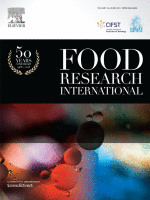
Animal Study
Fermented soy milk significantly improves lipid profiles and fertility in a model of premenopausal mice, due to increased bioavailability and action of beneficial compounds.
Ruiz de la Bastida A, Langa S, Peirotén , Fernández-Gonzalez R, Sánchez-Jiménez A, Maroto M, Antonio Curiel J, Guillamon E, Arqués JL, Gutiérrez-Adán A, Landete JM
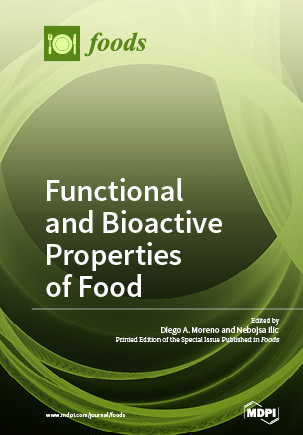
Animal Study
Long-term intake of traditionally made Doenjang, particularly high in certain species, may improve symptoms of estrogen deficiency more effectively than unfermented soybeans.
Zhang T, Yue Y, Jeong SJ, Ryu MS, Wu X, Yang HJ, Li C, Jeong DY, Park S

Randomised Controlled Trial
A diet low in fat, vegan, and inclusive of daily cooked soybeans significantly reduces the frequency and severity of hot flashes in postmenopausal women.
Barnard ND, Kahleova H, Holtz DN, Znayenko-Miller T, Sutton M, Holubkov R, Zhao X, Galandi S, Setchell KDR

Randomised Controlled Trial
Soybean lettuce extract effectively reduces symptoms of menopause syndrome without notable side effects.
Han AL, Lee HK, Chon HS, Pae HO, Kim MS, Shin YI, Kim S

Review Article
Modern extraction techniques improve the extraction of bioactive compounds from black soybeans, which have potential use in functional foods and nutraceutical components.
Kumar M, Suhag R, Hasan M, Dhumal S, Radha , Pandiselvam R, Senapathy M, Sampathrajan V, Punia S, Sayed AAS, Singh S, Kennedy JF

Review Article
Equol, a powerful estrogen-like compound derived from soy, could be key to better health in postmenopausal women if gut microbiome could be altered to facilitate its production.
Leonard LM, Choi MS, Cross TWL

Experimental Study
PIASCLEDINE-ExpASU®, a type of avocado/soybean unsaponifiable product, displays superior pharmacological activity due to its unique composition, including a high inhibitory effect on pro-inflammatory factors.
Lambert C, Bellemère G, Boyer G, Ponelle F, Bauer T, Legeny MC, Baudouin C, Henrotin Y

Review Article
Adzuki and Mung beans have great potential as functional foods for health promotion and disease prevention, offering an excellent source of essential nutrients and biodiversity for sustainable agriculture.
Shahrajabian MH, Sun W, Cheng Q

Meta-Analysis
Isoflavone supplementation noticeably impacts menopausal symptoms and hormonal changes in postmenopausal women.
Kang I, Rim CH, Yang HS, Choe JS, Kim JY, Lee M

Randomised Controlled Trial
A combined treatment of soy and hop extract is a safe and effective alternative to traditional hormone replacement therapy for improving postmenopausal symptoms.
Kim HI, Kim MK, Lee I, Yun J, Kim EH, Seo SK

Clinical Study
Consuming soymilk-honey fermented with a specific type of probiotic significantly reduces osteocalcin levels, which may impact bone health in postmenopausal women.
Desfita S, Sari W, Yusmarini Y, Pato U, Zakłos-Szyda M, Budryn G
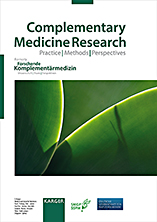
Systematic Review
Soy food intake, particularly fermented soy products, appear to have a protective effect on fracture risk among Asian women, especially in early menopause.
Akhavan Zanjani M, Rahmani S, Mehranfar S, Zarrin M, Bazyar H, Moradi Poodeh B, Zare Javid A, Hosseini SA, Sadeghian M

Animal Study
Adzuki bean extracts have shown more potential than black soybean extracts in lowering blood pressure in hypertensive rats, acting on the renin-angiotensin system.
Jeong EW, Park SY, Yang YS, Baek YJ, Yun DM, Kim HJ, Go GW, Lee HG
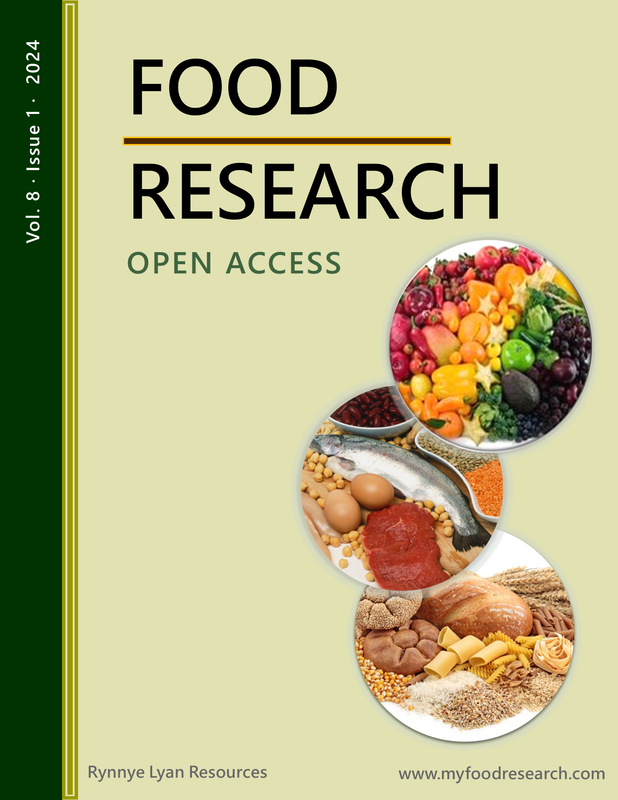
Review Article
Natto and Miso, Japanese fermented soy foods, contain health-promoting bioactive components, including nattokinase, bacillopeptidase F, vitamin K2, dipicolinic acid, γ-polyglutamic acid, isoflavones, and phenolic acids.
Chan EWC, Wong SK, Kezuka M, Oshiro N, Chan HT
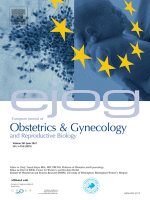
Systematic Review
Phytoestrogens, used in various forms, have shown improvement in urogenital menopause symptoms and improved women's sexual function, promoting overall quality of life.
Abdi F, Rahnemaei FA, Roozbeh N, Pakzad R
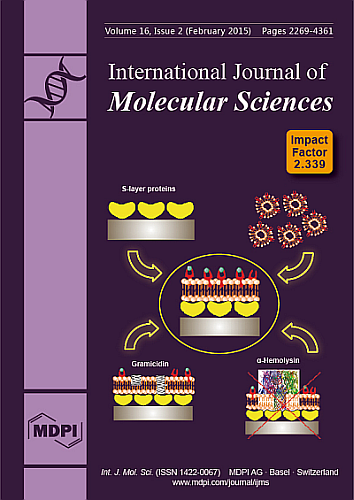
Systematic Review
Isoflavones found in soybeans can reduce risks of certain cancers and alleviate menopause-related symptoms among women, such as vasomotor syndromes, spinal bone loss, and hypertension.
Chen LR, Chen KH

Review Article
Fermented soybean products alleviate and possibly prevent neurodegenerative conditions, including Parkinson's and Alzheimer's diseases.
Jang CH, Oh J, Lim JS, Kim HJ, Kim JS

Animal Study
Traditional fermented products made from soybeans and rice, commonly consumed in the Japanese diet, show significant potential in preventing the progression of fatty liver disease.
Kanno R, Koshizuka T, Miyazaki N, Kobayashi T, Ishioka K, Ozaki C, Chiba H, Suzutani T

Review Article
Isoflavones, mainly found in soy-derived products, show beneficial effects on bone health, potential cancer risk reduction, and alleviation of menopausal symptoms, but not on cardiovascular risk.
Gómez-Zorita S, González-Arceo M, Fernández-Quintela A, Eseberri I, Trepiana J, Portillo MP
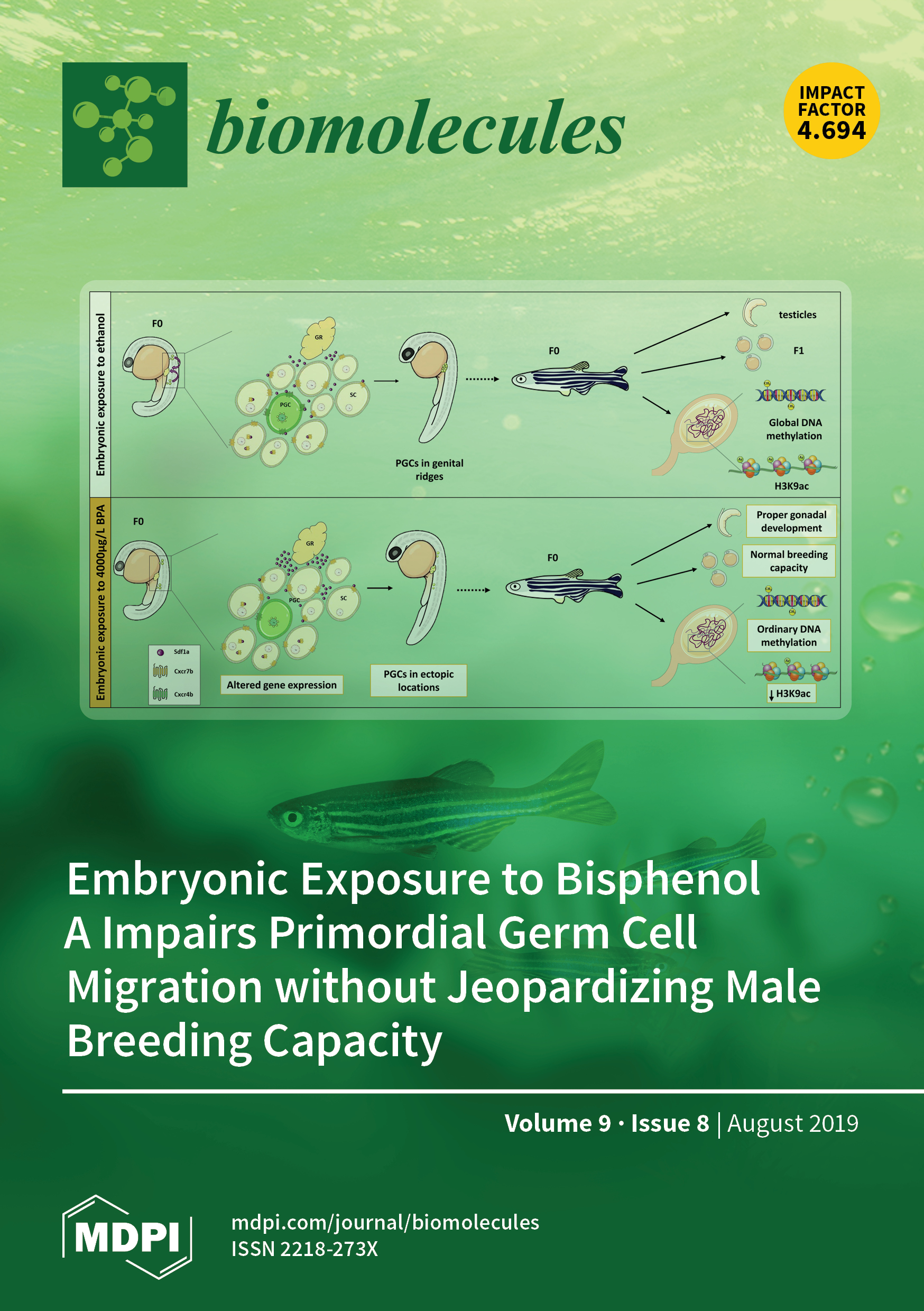
Review Article
Avocado and soybean unsaponifiables may effectively reduce inflammation and symptoms related to osteoarthritis, autoimmune diseases, and menopause.
Salehi B, Rescigno A, Dettori T, Calina D, Docea AO, Singh L, Cebeci F, Özçelik B, Bhia M, Dowlati Beirami A, Sharifi-Rad J, Sharopov F, C. Cho W, Martins N
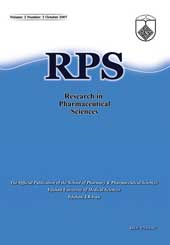
Network Pharmacology
Pomegranate fruit extract significantly enhances cartilage gene expression and chondrogenesis in human adipose-derived stem cells compared to Avocado/Soybean Unsaponifiable.
Bahramian H, Teimourinejad A, Hashemibeni B, Salehi H, Mostafavi FS, Kazemi M
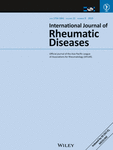
Systematic Review
Avocado-soybean unsaponifiables treatment is effective in reducing knee osteoarthritis symptoms without increasing adverse events, contrary to those with hip osteoarthritis.
Simental‐Mendía M, Sánchez‐García A, Acosta‐Olivo CA, Vilchez‐Cavazos F, Osuna‐Garate J, Peña‐Martínez VM, Simental‐Mendía LE
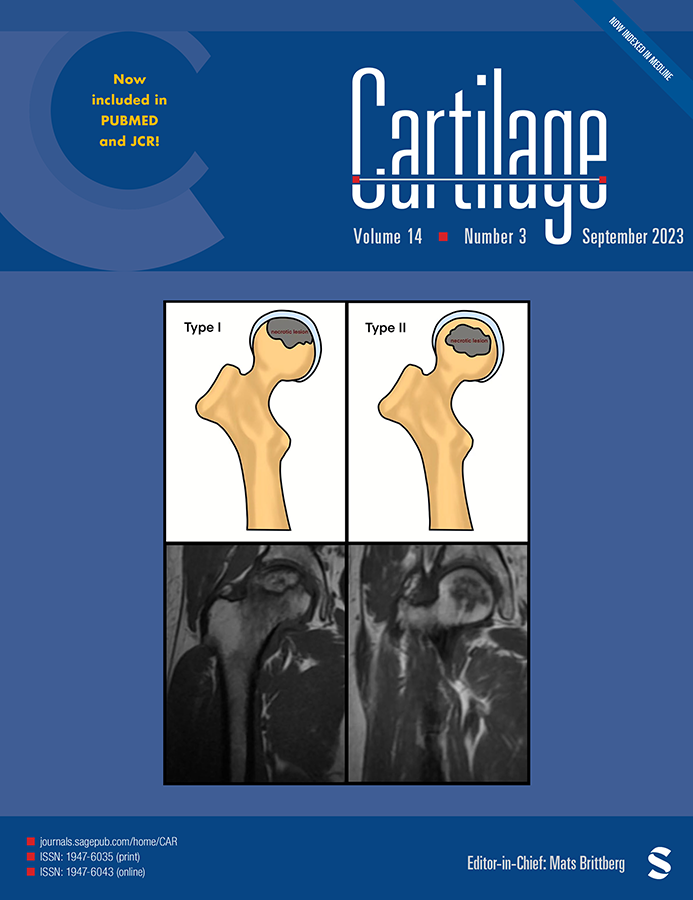
Review Article
A dietary supplement Avocado/Soybean Unsaponifiables aids in treating Osteoarthritis by preventing cartilage degradation and promoting cartilage repair, thereby reducing pain and enhancing joint functionality.
Christiansen BA, Bhatti S, Goudarzi R, Emami S
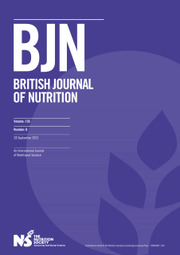
Experimental Study
Black soyabean seed coat extract significantly decreases hepcidin expression, leading to improved iron metabolism and potential treatment for iron-deficiency anaemia.
Mu M, Wu A, An P, Du X, Wu Q, Shen X, Wang F

Randomised Controlled Trial
The daily use of avocado-soybean unsaponifiable-expanscience (ASU-E) reduces the progression of joint space narrowing in patients with hip osteoarthritis.
Maheu E, Cadet C, Marty M, Moyse D, Kerloch I, Coste P, Dougados M, Mazières B, Spector TD, Halhol H, Grouin JM, Lequesne M
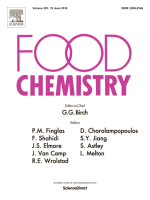
Experimental Study
Adzuki bean exhibited the strongest antiproliferative properties in a dose-dependent manner against all digestive system cancer cell lines, ovary cancer cell SK-OV-3 and breast cancer cell MCF-7 among all legumes tested.
Xu B, Chang SKC

Systematic Review
Soybean isoflavones, whether extracted or synthesized, prove significantly effective in reducing the frequency and severity of hot flashes in perimenopausal and postmenopausal women.
Taku K, Melby MK, Kronenberg F, Kurzer MS, Messina M
Executive Summary
Write an executive summary in the form of a blog article on the topic of "Research into Chinese medicine treatment for Soybean" summarising the research below and using language that can be easily understood by patients and avoiding medical jargon using a professional and caring tone of voice.
Write an executive summary in the form of a blog article on the topic of "Researched Chinese medicine treatments for Soybean" summarising the research below in an objective and easy to understand way, and using language that can be easily understood by patients. Group the article into Chinese medicine treatments first, followed by nutrition and other treatments. Avoid using medical jargon and use a professional and caring tone of voice.
Write me a concise but easy to understand executive summary on the topic of "Chinese medicine treatments for Soybean" based on the following research that I will give you. Your summary should be 2 paragraphs long in Australian English spelling and include references to the studies.
A Randomised Controlled Trial published in 2023 in the journal Complementary Therapies in Medicine found that Changes in gut microbiome associated with a low-fat, vegan diet and cooked soybeans may reduce the frequency and severity of postmenopausal hot flashes. In this study, 84 postmenopausal women experiencing two or more moderate-to-severe hot flashes daily were randomly assigned to a low-fat, vegan diet with daily cooked soybeans or allowed to maintain their usual diet. Over a 12-week period, the frequency and severity of hot flashes were tracked using a mobile application. In 11 women from the group, gut microbiome was analyzed at the start and after 12 weeks of the dietary intervention, using deep shotgun metagenomic sequencing. The women who underwent gut microbiome testing experienced a substantial decrease in total hot flashes during the dietary intervention, and severe hot flashes disappeared entirely in this group. Alpha and beta diversity within the microbiome showed no significant difference in the intervention group between baseline and the end of the 12 weeks. Interestingly, adjustments in the relative abundance of certain bacterial strains, notably Porphyromonas and Prevotella corporis, were linked with the reduction in severe day hot flashes, while changes in the relative abundance of Clostridium asparagiforme were associated with a reduction in total severe hot flashes and severe night hot flashes.
A Animal Study published in 2023 in the journal Nutrients found that A combination of soybean germ extract and a probiotic significantly improved menopause-related conditions and mood in an ovariectomized rat model. The study employed an ovariectomized rat model to understand the effects of a combination of soybean germ extract containing 30% isoflavone and a probiotic. The methodology included assessing the effects of this combination on several health markers including body weight, estrogen markers, uterine and bone health, vascular markers, and neurotransmitter levels in these rats. Once implemented, the combination of soybean germ extract and the probiotic showcased significant improvement in body weight and uterine and bone health of the rats. There were also noticeable effects on the lipid profile, liver function, and vascular markers. Most interestingly, the combination had a positive impact on the levels of serotonin and norepinephrine, indicating potential mood-enhancing effects, which are crucial in managing symptoms post-menopause. This essentially shows the potential of a dietary approach towards menopausal management, especially given the observed benefits without the side effects typically associated with hormone replacement therapy.
A Animal Study published in 2023 in the journal Journal of Functional Foods found that Fermented Pueraria lobata root extract and Glycine max extract showed estrogen-like activities, reducing depressive symptoms in menopausal mice but not increasing female cancer risks. The researchers focused on Pueraria lobata roots and Glycine max (also known as soybeans) extracts, which are rich in isoflavones but often limited in practical use due to their high molecular weight and low bioavailability. The researchers chose to ferment these extracts with Lactiplantibacillus plantarum strains which are known to convert glycosides to aglycones, potentially enhancing the beneficial effects of the isoflavones. Specifically, the study was conducted using ovariectomized mice. The research found that both fermented Pueraria lobata root extract and Glycine max extract exhibited estrogen-like activities. More intriguingly, the fermentation process increased the expression of estrogen receptor beta, suggesting that these extracts may not increase the risk of various female cancers—a common side effect of hormone replacement therapy—as was previously believed. Also, the ingestion of these extracts not only increased the estrogen receptor beta in the mice but also upregulated the expression of the brain-derived neurotrophic factor in the hippocampal region of the brain, thus improving depressive symptoms. The highest expression was observed in the group given a mixture of both extracts.
A Review Article published in 2023 in the journal PharmaNutrition found that Soy protein, bioactive peptides, and isoflavones are generally safe for consumption and may help reduce the risk of several significant health conditions. Methodology: This review followed the Preferred Reporting Items for Systematic reviews and Meta-Analyses guidelines. It began with a sophisticated multi-database search, featuring resources like Google Scholar, Scopus, and others. This search targeted articles published from 2017 to March 2023 and used specific keywords for accuracy. Forty-three articles were handpicked from this process after excluding reviews, conference reports, duplicates, inaccessible texts, and any non-English publications. Discussion of Results: A thorough examination of the chosen articles resulted in the conclusion that soy proteins, soy bioactive peptides, and soy isoflavones are typically safe for human consumption. Furthermore, it was found that the consumption of these compounds may have beneficial effects, potentially lowering risk factors for ailments such as osteoporosis, various cancers, hypertension, atherosclerosis, and more.
A Review Article published in 2023 in the journal Journal of Microbiology and Biotechnology found that Soybean intake can potentially reduce risks of several cancers, type 2 diabetes, osteoporosis, and hot flashes, and it may negatively impact some drug treatments and cause allergies. This research primarily involves review and analysis of current clinical studies focusing on the benefits and risks of soybean ingredients. The method appears to be a systematic review of various epidemiological studies which were investigating the correlation between soybean consumption and the risk of developing multiple types of cancers including breast, prostate, colorectal, ovarian, and lung cancers. Besides cancer, other common diseases such as type 2 diabetes, osteoporosis, and menopausal symptoms like hot flashes were also investigated. Moreover, any potential adverse effects of soybean, including its possible detrimental impact on certain drug treatments and its allergenicity, were also factors of study in these clinical evidences. In the discussion of results, the researchers found a significant inverse association between soybean intake and cancer risks, wherein an increase in the consumption of soybean foods was associated with a reduced likelihood of cancer. Besides showing potential anticancer properties, soybean consumption was found inversely correlated with risks of type 2 diabetes. Soy isoflavones, compounds present in soybeans, also showed potential benefits in the management of osteoporosis and hot flashes. On the other hand, the adverse effects of soybean, including interference with certain drug therapies and causing allergies, were also duly noted. Therefore, the research concludes that while soybean promises several significant health benefits, caution should be exercised for individuals under specific drug treatments or with allergies to soy.
A Animal Study published in 2023 in the journal Food Research International found that Fermented soy milk significantly improves lipid profiles and fertility in a model of premenopausal mice, due to increased bioavailability and action of beneficial compounds. In this study, non-fermented soy beverage (SB) and soy beverage fermented with Bifidobacterium pseudocatenulatum INIA P815 (FSB) were tested on both cyclic and acyclic C57BL/6J aged female mice which mimic premenopause and menopause conditions respectively. Over a period of 36 days, the beverages were given to the mice and the variables measured included body weight, lipid and inflammatory profile and fertility. In addition, hepatic gene expressions were examined and the faecal microbiota composition was assessed to further understand the effects of the two beverages. In the results, FSB displayed a higher concentration of the aglycones daidzein and genistein as well as increased antioxidant activity due to the fermentation process. The cyclic mice that were given FSB experienced a significant rise in the number of oocytes and zygotes retrieved. It was also noticed that the triglycerides were lower in the groups that were given FSB compared to the SB groups. However, it was found that neither of the treatments significantly influenced the inflammatory profile or caused a major shift in intestinal microbiota or hepatic gene expressions in either of the groups. Still, it was observed that FSB had more health benefits than SB with regards to the lipid profile and fertility in the cyclic mice, likely due to the increased bioavailability and bioactivity of compounds due to fermentation.
A Animal Study published in 2023 in the journal Foods found that Long-term intake of traditionally made Doenjang, particularly high in certain species, may improve symptoms of estrogen deficiency more effectively than unfermented soybeans. The study involved using four different types of traditionally made Doenjang (TMD), distinguished based on the quantities of certain species and biogenic amines they contained. These were used to observe possible alterations in energy, glucose, and lipid metabolism in estrogen-deficient female rats via potential modification of the gut microbiota. This involved comparing a control group of rats that underwent ovary removal with five other groups that were supplemented with different types of TMD and cooked soybeans. The outcomes revealed that weight gain and visceral fat mass were lower and lean body mass was higher in the TMD and cooked soybean intake groups compared to the control group, however, these figures were not as good as those in the normal control group. Additionally, the hepatic triglyceride content was lower with TMD intake. It was further observed that the intestinal health significantly improved in the TMD groups, and some groups revealed more improvements than others. Concerning gut microbiota, certain groups showed an increase in certain types of organisms, suggesting a benefit from high amounts of the specific species in TMD. The study inferred that TMD rich in certain species correlates positively with the regulation of estrogen-related markers.
A Randomised Controlled Trial published in 2022 in the journal Menopause found that A diet low in fat, vegan, and inclusive of daily cooked soybeans significantly reduces the frequency and severity of hot flashes in postmenopausal women. The methodology used involved the selection of 84 postmenopausal women who reported at least two moderate-to-severe hot flashes. These women were randomly divided into two cohorts, one prescribed the dietary intervention of a low-fat, vegan diet coupled with daily servings of cooked soybeans and a control group which did not alter their diet. Over a 12-week period, a mobile application was used to track hot flashes in terms of frequency and severity. Further, the participants’ vasomotor, psychosocial, physical, and sexual symptoms were assessed using the Menopause-Specific Quality of Life questionnaire. In some participants, the presence of urinary equol, a compound formed in the gut after consuming soy, was measured following the intake of the specified amount of soybeans for 3 days. In discussing the results, a remarkable decrease was noted in the frequency and severity of hot flashes experienced by the group assigned the dietary intervention versus those in the control group. In addition, after 12 weeks, half of the participants adhering to the vegan diet and daily soy intake reported complete cessation of moderate-to-severe hot flashes. Furthermore, notable decreases were reported in the intervention group in menopause-specific quality of life domains including vasomotor, physical, and sexual. Neither the season nor the participant's ability to produce equol played a notable role in these improvements.
A Randomised Controlled Trial published in 2022 in the journal Nutrients found that Soybean lettuce extract effectively reduces symptoms of menopause syndrome without notable side effects. The study targeted adult women suffering from menopausal syndrome with a Kupperman index of 15 or more. Participants were split into two groups – the experimental group and the placebo group. The research spanned over a four-week period and embraced a total of 39 participants (with one dropping out). Measurements of body mass index, waist circumference, and several cholesterol levels were taken before and after the study, but these didn't show any significant changes. In the results discussion, the most notable finding was a significant reduction in the Kupperman index in the experimental group. They were given the natural nitric oxide-containing soybean lettuce extract. This decrease denotes the alleviation of menopausal symptoms, offering an effective, natural alternative to hormone therapy. Conversely, the placebo group didn't show any substantial change, reinforcing the efficacy of the soybean lettuce extract.
A Review Article published in 2022 in the journal Critical Reviews in Food Science and Nutrition found that Modern extraction techniques improve the extraction of bioactive compounds from black soybeans, which have potential use in functional foods and nutraceutical components. These modern extraction techniques involve the application of technologies such as microwaves, ultrasounds, and enzymes. Contrary to traditional methods that depend on simple yet toxic solvents, these contemporary options yield higher amounts of bioactive substances from black soybeans, are quicker, and are less damaging to the environment. The exact bioactive compounds extracted include anthocyanins, phenolic acids, isoflavones, and flavones, among others. Researchers discovered that black soybeans, and specifically their seed coat, are rich in various bioactive compounds. These compounds have been reported to possess numerous health benefits, showing antioxidant, anti-cancer, anti-diabetic, anti-obesity, anti-inflammatory, cardio and neuroprotective activities. The study also explores how these soybean extracts have been used in the manufacture of food products like noodles, in the development of biodegradable films with pH sensitivity, and in therapeutic applications such as promoting wound healing and alleviating inflammation. The comprehensive review, therefore, serves as a handy reference for food manufacturers and scientists, showcasing the vast potential of black soybeans in the development of functional foods and nutraceuticals.
A Review Article published in 2022 in the journal Nutrients found that Equol, a powerful estrogen-like compound derived from soy, could be key to better health in postmenopausal women if gut microbiome could be altered to facilitate its production. The methodology of this research involved looking closely at the properties and actions of equol, a metabolite of the soy isoflavone daidzein. This substance is produced through the process of intestinal bacterial metabolism, but the ability to produce it is not present in over half of the human population due to the absence of specific equol-producing bacteria in the gastrointestinal tract. Given that the make up of the gut microbiome varies from person to person, understanding the effects of equol and daidzein in the human body has been a complex task. Furthermore, the fact that rodents easily produce equol complicates the matter, as findings from rodent models may not directly apply to humans. While interpreting the results, it was found that equol, due to its strong estrogenic activity, could potentially be an excellent means to manage postmenopausal symptoms and overall health. However, the ability to produce equol varies significantly among people, based on the bacterial microflora of their gut. Therefore, the benefits of equol could potentially be amplified by finding effective methods to manipulate the gut microbiome to foster equol production, a strategy that could lead to improved health outcomes for postmenopausal women.
A Experimental Study published in 2022 in the journal Frontiers in Pharmacology found that PIASCLEDINE-ExpASU®, a type of avocado/soybean unsaponifiable product, displays superior pharmacological activity due to its unique composition, including a high inhibitory effect on pro-inflammatory factors. The study began with the characterisation of the lipid content of seven different avocado/soybean unsaponifiable (ASU) products through gas chromatography analysis performed on a VARIAN 3400 chromatograph. In parallel, the effects of these products were tested on human osteoarthritis chondrocytes (cartilage cells) cultured in alginate beads. The researchers focused on the effects of these ASU products on aggrecan, key interleukins, and matrix metalloproteases. In terms of results, PIASCLEDINE-ExpASU® stood out due to a specific profile involving unique chromatographic peaks and the presence of specific compounds like alkyl furan fraction, alkyl triols, and squalene. Remarkably, this product showed heightened efficacy in inhibiting production of nitric oxide, interleukins, and catabolic factors. Meanwhile, excepting two products, the remaining ASUs showed varied capacity in increasing aggrecan production, a positive factor in the context of osteoarthritis treatment.
A Review Article published in 2022 in the journal International Review of Neurobiology found that Adzuki and Mung beans have great potential as functional foods for health promotion and disease prevention, offering an excellent source of essential nutrients and biodiversity for sustainable agriculture. This study explores the health benefits and agricultural sustainability of adzuki and mung beans. Adzuki beans, traditionally used in traditional Chinese medicine, provide essential fatty acids, fiber, minerals, and phytochemicals promoting health and combating disease. These beans also have natural nitrogen-fixing properties beneficial to cropping systems. Similarly, mung beans contribute protein and nitrogen to agriculture, supporting soil health and crop yields. They also offer health benefits including antioxidant, antifungal, antiinflammatory, and antimicrobial activities. Additionally, both adzuki and mung beans, through biological nitrogen fixation, may lessen reliance on chemical fertilizers, promoting environmental and economic sustainability. The results suggest both adzuki and mung beans can play a significant role in health promotion and in sustainable agriculture. Influencing health with their nutrient richness and variety, these beans provide essential fatty acids, fiber, minerals, and phytochemicals. With their nitrogen-fixing properties, they can enhance soil quality and reduce dependence on chemical fertilizers. Simultaneously, by being able to restore organic matter to the soil, they can curb pests and disease issues. Thus, these beans serve as a viable economic and environmental option for future agricultural systems while promoting health.
A Meta-Analysis published in 2022 in the journal Nutrition Research and Practice found that Isoflavone supplementation noticeably impacts menopausal symptoms and hormonal changes in postmenopausal women. In order to examine isoflavones effects on menopausal symptoms and the associated hormonal alterations, a systematic review and meta-analysis were conducted. To do this, the PubMed and EMBASE databases were used, but the selected studies were restricted to random controlled trials (RCTs) assessing isoflavone supplementation's impact on menopausal symptoms. Overall, 11 studies were chosen for the final quantitative evaluation, and the isoflavone intervention amount varied among these studies. The Meta-analysis displayed that supplementing isoflavones meaningfully increased estradiol levels and the Kupperman index (a composite scoring of multiple menopausal symptoms intensity). Yet, there were no significant impacts observed on hot flashes, or the release of two specific hormones: follicle-stimulating hormone and luteinizing hormone. It should be noted that there was a significant inconsistency in estradiol levels and Kupperman index findings among different studies.
A Randomised Controlled Trial published in 2021 in the journal The Journal of Alternative and Complementary Medicine found that A combined treatment of soy and hop extract is a safe and effective alternative to traditional hormone replacement therapy for improving postmenopausal symptoms. In this double-blinded, randomized controlled trial, researchers administered a combination of soy and hop extract to 78 postmenopausal women with moderate to severe symptoms. Conducted in the gynecological outpatient clinic of a tertiary hospital, all subjects had modified Kupperman Menopausal Index (KMI) scores over 20. Participants either received the treatment or a placebo, as the researchers sought to evaluate their menopausal symptoms over the course of 12 weeks. The changes to their menopausal symptoms were tracked through self-reported KMI scores at multiple intervals. They also gauged measures such as the serum levels of bone metabolism markers, ultrasonographic parameters, hormone profiles, and safety assurances, amongst others. In terms of test results, after undergoing the 12-week treatment, the group receiving the combined soy and hop extract saw more considerable improvements in their symptoms compared to the placebo group. They particularly noted notable enhancements in conditions like fatigue, paresthesia, arthralgia, and myalgia, palpitations, and vaginal dryness. Lowered increases in urine N-telopeptide, a biomarker for bone metabolism, were observed in treatment group participants aged 50 and older. Meanwhile, endometrial thickness and hormonal profiles did not display any significant shifts in either group. Importantly, throughout the trial, no harmful side effects or events arose, speaking to the safety of the treatment.
A Clinical Study published in 2021 in the journal Nutrients found that Consuming soymilk-honey fermented with a specific type of probiotic significantly reduces osteocalcin levels, which may impact bone health in postmenopausal women. The researchers conducted a 90-day pre-post quasi-experimental study with control design on 54 postmenopausal women who were divided into three groups. The first group consumed regular soymilk, the second group consumed soymilk-honey fermented with a specific sub species of probiotics, and the third group consumed soymilk-honey fermented with a different type of probiotics. Each participant consumed 100 mL of their respective drink per day for 90 days. Measurements of blood serum osteocalcin were taken at the start and end of the study, alongside assessments of each participant's overall health status, including total cholesterol, blood glucose, and uric acid levels. In terms of results, it was observed that the group consuming the soymilk-honey fermented with the particular probiotic showed a significant decrease in their osteocalcin levels after the 90-day period. This indicates that this specific fermented soymilk-honey beverage might have a positive impact on bone health in postmenopausal women.
A Systematic Review published in 2021 in the journal Complementary Medicine Research found that Soy food intake, particularly fermented soy products, appear to have a protective effect on fracture risk among Asian women, especially in early menopause. The research team carried out a systematic review of prospective cohort studies investigating the link between soy food intake and fracture risk. The databases searched were PubMed, Scopus, and Embase up to June 2021, and the team narrowed down 695 records to include 5 high-quality cohort studies. These selected studies were mostly conducted in China, Singapore and Japan and varied in their focus on different types of fractures. The dietary intake of soy food was assessed across all studies through face-to-face interviews. In the analysis of the results, a promising relationship was found between the consumption of soy foods and a reduced risk of fractures among Asian women, notably for those in the early stages of menopause or those who consumed fermented soy products. In contrast, the association was not significant among men.
A Animal Study published in 2021 in the journal Foods found that Adzuki bean extracts have shown more potential than black soybean extracts in lowering blood pressure in hypertensive rats, acting on the renin-angiotensin system. The methodology used in this research involved the administration of varying volumes of black soybean and adzuki bean ethanol extracts to seven groups of rats, which included one group of normal rats and six groups of spontaneously hypertensive rats. The purpose of the extracts was to explore their antihypertensive effects on aspects such as blood pressure, the renin-angiotensin system, and aortic lesions. The results revealed that black soybean and adzuki bean extracts significantly reduced various biomarkers such as liver weight, triglycerides, total cholesterol, and systolic blood pressure. On a comparative basis, the adzuki bean extracts (AE) demonstrated a greater antihypertensive potential than black soybean extracts (BE). Specifically, the angiotensin II level and blood pressure in the AE-treated group were lower than those in the BE-treated group, leading to the conclusion that AE exhibits higher antihypertensive potential.
A Review Article published in 2021 in the journal Food Research found that Natto and Miso, Japanese fermented soy foods, contain health-promoting bioactive components, including nattokinase, bacillopeptidase F, vitamin K2, dipicolinic acid, γ-polyglutamic acid, isoflavones, and phenolic acids. The process of preparing natto involves fermenting cooked soybeans with Bacillus subtilis natto. This gives the soybeans a sticky appearance, a slippery texture, a sour aroma and a nutty flavour, and results in the production of bioactive components such as nattokinase, bacillopeptidase F, vitamin K2, dipicolinic acid, and γ-polyglutamic acid. Miso, on the other hand, refers to a paste produced by fermenting cooked soybeans with koji, which is steamed rice inoculated with Aspergillus oryzae. The health benefits of these bioactive components, produced during the fermentation process of both natto and miso, have been identified and accentuated. These components add value to traditional soy foods, boosting their potential in promoting health. The wealth of bioactive nutrients in these foods indicate the reiterate the importance of traditional fermented foods in dietary practices.
A Systematic Review published in 2021 in the journal European Journal of Obstetrics & Gynecology and Reproductive Biology found that Phytoestrogens, used in various forms, have shown improvement in urogenital menopause symptoms and improved women's sexual function, promoting overall quality of life. A thorough and systematic review was conducted on databases including PubMed, EMBASE, Web of Science, Cochrane library, Scopus and ProQuest, spanning from the years 2000-2020. The focus was solely on randomized clinical trials. An evaluation of the quality of selected papers was carried out using the CONSORT checklist. In total, 33 high-quality papers were reviewed which discussed the different forms and uses of phytoestrogens. The results of this systematic review reveal that phytoestrogens including Pueraria Mirifica, fennel, Hop plant, Glycine Max, soy, red clover, black cohosh, ginsing, cimicifugaracemosa, genistein, diadzein, glycitein and isoflavone, used as various products such as oral capsules, pills, food supplements, enriched powders, vaginal gels, creams and suppositories, improved menopausal urogenital symptoms. Particularly, the recovery rate was found to be higher when these were applied vaginally. Further implication of these findings is the enhancement of women's sexual function following treatment, validating the use of phytoestrogens as a safe, low-risk and accessible method to alleviate urogenital symptoms.
A Systematic Review published in 2021 in the journal International Journal of Molecular Sciences found that Isoflavones found in soybeans can reduce risks of certain cancers and alleviate menopause-related symptoms among women, such as vasomotor syndromes, spinal bone loss, and hypertension. The study overviewed soybeans' chemical composition and focused mainly on isoflavones. The research examined the processes of soybean preparation that includes cleaning, drying, crushing, and dehulling, and extraction methods to derive various soy products, particularly focusing on isoflavones - daidzein, genistein, and S-equol. Various soy products such as refined soy oil, soy lecithin, free fatty acids, glycerol, and soybean meal were discussed, along with the presence of the minor biological constituents in remaining components. The study explored the relationship between isoflavone consumption and disease prevention, particularly in relation to heart disease, cancer incidence—of the breast, bladder, and endometrial and colorectal—and menopause-related symptoms. The therapeutic effects of isoflavones were studied in the context of vasomotor syndromes, spinal bone loss, hypertension regulation, depressive symptoms during pregnancy, and in vitro glycemic control. In contrast, it failed to find definitive effects of isoflavones on cognition improvement and urogenital symptoms. The inconsistencies in defining the ingredients, doses, study durations, and outcomes of isoflavone studies proved challenging for the research.
A Review Article published in 2021 in the journal Foods found that Fermented soybean products alleviate and possibly prevent neurodegenerative conditions, including Parkinson's and Alzheimer's diseases. The study involved the fermentation of cooked soybeans with specified bacteria and fungi species, a process known to produce a range of bioactive compounds. These unique compounds, which are most often beneficial to health, are contained in fermented soybean products that are a staple in East Asian diets. In analyzing the results, the focus was on the potential of these fermented soy foods and their components in managing neurodegenerative diseases. Notably, the findings suggested a significant preventive and curative effect of these products on such ailments as Alzheimer's and Parkinson's diseases. The paper, therefore, presents fermented soy foods as potentially reliable natural solutions to these neurodegenerative conditions.
A Animal Study published in 2021 in the journal Foods found that Traditional fermented products made from soybeans and rice, commonly consumed in the Japanese diet, show significant potential in preventing the progression of fatty liver disease. In the study, C57BL/6J mice were first acclimated for two weeks. Following this period, they were segregated into groups and fed on different diets for a duration of 20 weeks. These diets included a Normal Diet (ND), a High-Fat Diet (HFD), an HFD containing 5% of the fermented soybean and rice product (denoted as HFD+M), and an HFD with 5% of a pre-fermented form of the product (HFD+PFM). The focus was on assessing the impact of these diets on the development of fatty liver disease in the subjects. The mice consuming solely the high-fat diet developed the symptoms of a typical fatty liver, as anticipated. However, the mice fed with diets that included either the fermented soybean and rice product or its pre-fermented variety showed a substantial reduction in the progression of the fatty liver disease, notably in the female subjects. This was observed in terms of diminished liver weight. Moreover, a decrease was noted in the levels of leptin and resistin, hormones linked with obesity and insulin resistance, in the serum of these groups. The male subjects also showed resistance against fatty liver disease progression upon the consumption of these diets. This study therefore demonstrates the value of including such traditional fermented food products in the diet as possible deterrents against lifestyle-induced ailments like metabolic syndrome.
A Review Article published in 2020 in the journal Nutrients found that Isoflavones, mainly found in soy-derived products, show beneficial effects on bone health, potential cancer risk reduction, and alleviation of menopausal symptoms, but not on cardiovascular risk. The study examined the potential uses of isoflavones, phenolic compounds mostly found in soy-derived foods and several vegetables. Isoflavones are seen as potential alternative therapies for hormone-dependent disorders due to their near-identical chemical structure to estradiol. These disorders include certain cancers, cardiovascular diseases, and menopausal symptoms. The investigation involved reviewing existing scientific evidence to evaluate the potential effects of isoflavones on these diseases and health concerns. In assessing the results, the review found evidence suggesting that isoflavones could have a beneficial effect on postmenopausal women's bone health, contributing to osteoporosis prevention and treatment. However, observed study results were not entirely conclusive due to discrepancies among study designs. Contrarily, there appeared to be no significant protective effect against cardiovascular risk with soy isoflavones. In terms of cancer, preliminary observations suggested that isoflavones may reduce some types of cancer risks, such as breast and endometrial cancer. Lastly, isoflavones showed a potential role in reducing hot flushes associated with menopause. Concerning safety, most common adverse effects were mild and observed at the gastrointestinal level.
A Review Article published in 2020 in the journal Biomolecules found that Avocado and soybean unsaponifiables may effectively reduce inflammation and symptoms related to osteoarthritis, autoimmune diseases, and menopause. The research involves summarizing various studies on the biological effects of the avocado-soybean unsaponifiables (ASU), highlighting its potent anti-inflammatory properties. The extracted ASU are a combination of elements derived from the fruits and seeds of avocados and soybeans. To understand its impact, the researchers categorized the applications of ASU in treating different conditions such as osteoarthritic pain, hip and knee osteoarthritis, autoimmune diseases, and menopause-related symptoms amongst postmenopausal women. The discussion revealed significant links between avocado and soybean unsaponifiables and symptom improvement in areas of osteoarthritic pain, autoimmune conditions, and postmenopause. Particularly notable is the ASU mixture's potential role as an adjunct treatment, meaning it’s meant to supplement primary treatments for such conditions. Its benefits were not only limited to physical reduction of inflammation and associated pain, but also improved mood and quality of life for postmenopausal women by significantly reducing menopause-related symptoms. The study also delves into the safety, toxicological considerations, and regulatory practices related to the use of ASU.
A Network Pharmacology published in 2020 in the journal Research in Pharmaceutical Sciences found that Pomegranate fruit extract significantly enhances cartilage gene expression and chondrogenesis in human adipose-derived stem cells compared to Avocado/Soybean Unsaponifiable. Human adipose-derived stem cells were first isolated, expanded in monolayer culture, and identified, and then seeded on fibrin scaffolds. These cell-impregnated scaffolds were divided into 4 groups: a control group, an Avocado/Soybean unsaponifiable (ASU) group, a Pomegranate Fruit extract (PFE) group, and a mixed ASU/PFE group. Each group was subjected to induction for two weeks with the corresponding substances, except the control group which only received chondrogenic medium. The levels of cell viability, cartilage gene expression, matrix staining density, and collagen type II proteins in the PFE samples were found to be noticeably greater than other groups. Histological assessments further highlighted higher chondrogenic centers in the PFE group. This indicates that PFE significantly enhances chondrogenesis and cartilage gene expression in these cells, suggesting potential use in cartilage tissue engineering.
A Systematic Review published in 2019 in the journal International Journal of Rheumatic Diseases found that Avocado-soybean unsaponifiables treatment is effective in reducing knee osteoarthritis symptoms without increasing adverse events, contrary to those with hip osteoarthritis. To assess avocado-soybean unsaponifiables (ASU) effectiveness and safety, a systematic review and meta-analysis of randomized controlled trials involving patients with hip or knee osteoarthritis was conducted. Various scientific databases, including Medline, SCOPUS, Web of Science, and Google Scholar, were thoroughly searched for suitable trials. Selection criteria consisted of randomized placebo-controlled trials wherein the effect of orally administered ASU on knee or hip osteoarthritis symptoms were evaluated, primarily using the Lequesne index, visual analog scale, and joint space width. The meta-analysis revealed a significant reduction in pain as assessed by the visual analog scale for those under Avocado-soybean unsaponifiables therapy, particularly for patients with knee osteoarthritis, indicated by a decrease in both the visual analogue scale and Lequesne index. However, no such significant effect was found for patients with hip osteoarthritis. In terms of safety, there were no significant differences in adverse events between patients receiving ASU and those given a placebo, confirming ASU's relative safety as a treatment option.
A Review Article published in 2014 in the journal CARTILAGE found that A dietary supplement Avocado/Soybean Unsaponifiables aids in treating Osteoarthritis by preventing cartilage degradation and promoting cartilage repair, thereby reducing pain and enhancing joint functionality. Avocado/Soybean Unsaponifiables was studied for its effects on Osteoarthritis. The methodology highlighted its functions, which include inhibiting the release and activity of molecules and pathways that are implicated in OA, as well as those that prevent cartilage degradation. These functions are principally through the prohibition of matrix metalloproteinases and the increase of tissue inhibitors of the catabolic enzymes in question. Additionally, ASU was found to inhibit fibrinolysis by stimulating the expression of plasminogen activator inhibitor. Moreover, its anabolic properties were credited with promoting cartilage repair by stimulating collagen and aggrecan synthesis while inhibiting inflammatory cytokines. ASU's chondroprotective effects were noted as well; these effects are brought about by correcting growth factor abnormalities, and by simultaneously increasing Transforming Growth Factor-Beta in synovial fluid while decreasing vascular endothelial growth factor. Additionally, it was observed to inhibit cholesterol absorption and biosynthesis, which further contribute to its beneficial role by moderating reactive oxygen species pathology in chondrocytes. Results indicated that the dietary supplement has significant therapeutic value for those suffering from Osteoarthritis. It reduces pain and stiffness while improving joint function, resulting in less dependency on painkillers. It was found that ASU's preventative measures towards cartilage degradation and its promotion of cartilage repair play essential roles in its efficiency as a treatment for OA.
A Experimental Study published in 2014 in the journal British Journal of Nutrition found that Black soyabean seed coat extract significantly decreases hepcidin expression, leading to improved iron metabolism and potential treatment for iron-deficiency anaemia. The research employed both in vitro and in vivo experimental designs using cells treated with black soyabean seed coat extract (BSSCE) and 8-week-old male mice fed with a diet containing 2% BSSCE respectively. The study measured the effect of this extract on the expression of hepcidin, which is known to regulate iron homeostasis. In addition to this, its impact on splenic iron concentrations, serum iron concentrations and the phosphorylation levels of specific proteins was assessed. The study found that BSSCE effectively inhibited the expression of hepcidin in both the in vitro and in vivo investigations. The mice given a diet containing BSSCE showed a decrease in hepatic hepcidin expression and splenic iron concentrations, while at the same time, an increase was observed in serum iron concentrations. The BSSCE induced this change through a decrease in the phosphorylation of mothers against decapentaplegic homolog proteins. There were marked increases in erythrocyte counts, hemoglobin concentrations, and hematocrit values in the test mice, indicating improved iron metabolism. This suggest that black soyabean extract has potential in regulating iron metabolism, presenting possibilities for the treatment of hepcidin-related diseases, including iron-deficiency anaemia.
A Randomised Controlled Trial published in 2013 in the journal Annals of the Rheumatic Diseases found that The daily use of avocado-soybean unsaponifiable-expanscience (ASU-E) reduces the progression of joint space narrowing in patients with hip osteoarthritis. The conducted trial was a prospective, randomised, double-blind study with parallel groups under placebo control over three years. The participants included symptomatic hip osteoarthritis patients having experienced pain for a minimum of one year and featuring a joint space width (JSW) between 1 and 4 mm in the affected hip. Participants were assigned randomly to a daily intake of 300 mg ASU-E or a placebo. Annual pelvic radiographs in standing position were performed, with the primary focus on the change in JSW at the end of year three. Despite no significant difference in mean JSW loss between the ASU-E group and placebo, fewer progressors (patients with JSW loss of 0.5mm or more) were recorded in the ASU-E group, marking a 20% decrease compared to the placebo group. This indicates a potential therapeutic effect of ASU-E on the structural integrity of hip joints in osteoarthritis patients. However, clinical outcome comparisons did not yield any significant differences between the groups. The safety profile of ASU-E was determined to be excellent.
A Experimental Study published in 2012 in the journal Food Chemistry found that Adzuki bean exhibited the strongest antiproliferative properties in a dose-dependent manner against all digestive system cancer cell lines, ovary cancer cell SK-OV-3 and breast cancer cell MCF-7 among all legumes tested. This research involved comparing the health-promoting effects of various food legumes. The Cellular Antioxidant Activity (CAA) was assessed using a fluorescence microplate reader and in vitro animal cell cultivation. The antiproliferative properties against cancer cells were evaluated through the MTT method in an in vitro cell culture system. Additionally, the study quantified phytochemicals (total phenolic, procyanidin, saponin, and phytic acid) and chemical antioxidant activities (DPPH free radical scavenging activity, oxygen radical absorbing capacity, peroxyl radical scavenging capacity). The results indicated significant variations in phytochemical and antioxidant activities among different legumes. Notably, adzuki bean demonstrated the strongest dose-dependent antiproliferative effects against various cancer cell lines, including those from the digestive system, ovary, and breast. Meanwhile, black soybean showed the highest levels of saponin, phytic acid, and the strongest cellular antioxidant activities. These findings suggest that food legumes, particularly adzuki beans and black soybeans, are promising as natural antioxidants for health promotion and cancer prevention.
A Systematic Review published in 2012 in the journal Menopause found that Soybean isoflavones, whether extracted or synthesized, prove significantly effective in reducing the frequency and severity of hot flashes in perimenopausal and postmenopausal women. The examination in this study began with a database search on PubMed and The Cochrane Controlled Clinical Trials Register for articles shedding light on double-blinded randomized controlled trials conducted until December 14, 2010. Additionally, the authors kept a keen eye out for other peer-reviewed articles containing potentially useful information. Any articles discovered were scrutinized for information on the effects of isoflavones on the frequency or severity of hot flashes in comparison to a placebo. 19 trials were found suitable for inclusion in a systematic review, while 17 of these made it to the meta-analysis stage. Among the 19 trials under review, data revealed that soybean isoflavones' ingestion, on a median of 54 mg for 6 weeks to 12 months, seemed to lead to a decrease in the frequency of hot flashes. A similar trend was discerned with hot flash severity, which reportedly reduced with isoflavone intake. Interestingly, it was found that isoflavone supplements with over 18.8 mg of genistein were more than twice as powerful in reducing hot flash frequency as supplements with a lower genistein count. These results, compiled over the course of the study, strongly suggest that soy isoflavone supplements are quite effective in mitigating the issue of hot flashes in perimenopausal and postmenopausal women.
Moderation Tools
Topic
Sign In
Users not signed in are limited to viewing the 5 most recent items of content.